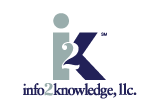|
Early organization relied on physical and military strength to control and develop resources and commerce. Later it become a function of industrial and capital strength to control and develop resources and commerce. In the future, it will be dependent upon the generation of ideas and the efficient collection and dissemination of information.
Based on this hypothesis:
- Good ideas have power to generate commerce and move nations and are thus valuable.
- Information availability and handling give the nation an advantage in commerce and industry. Universities should and do deal with ideas related to the leading edge of society and technology. Therefore, universities must move aggressively to the center of the idea and information highway in order to assist the nation in the global competition of ideas and commerce.
INTELLECTUAL PROPERTIES
An intellectual property is any product of the human intellect that is unique, novel, and unobvious and has some value in the marketplace.
- an idea.
- invention.
- expression or literary creation.
- unique name.
- business method.
- industrial process.
- chemical formula.
- computer program process.
- presentation.
INVENTOR
An intellectual property is created by an inventor. An inventor is narrowly defined as a person who, alone or in combination with others, conceives a complete and operative manner of:
- performing a process,
- making a machine,
- manufacture,
- composition of matter,
- improvement contributes to the conception or the mental development of the complete procedure
- by which the invention is achieved,
- to the degree it may be reduced to practice by one skilled in the art.
- Working on the project does not qualify one as an inventor.
PATENTS
A patent is a property right granted by the United States, and by other nations, which gives the holder the exclusive right to exclude others from manufacture, use, or sale of the invention. Under GATT, the patent property rights exist for a period of 20 years from date of application. Patent property rights may be sold, assigned, pledged, mortgaged, licensed, willed or donated and be the subject of contracts and other agreements. The owner has the opportunity to profit by manufacture, sell, or use of the invention in a protected market or by charging others for making or using it.
- Patents provide leverage in the market that results in profit margin.
- Patents are a license to file suit.
- Products must have a significant (factor of 10) advantage in cost, manufacturing, marketing, or performance to be commercially viable.
- Patent rights to intellectual properties created in the process of federally sponsored research programs are usually retained by the contracting organization.
- The federal government retains the rights to royalty free use for government purposes.
COPYRIGHTS
A copyright is a grant by the United States of exclusive rights over the writings of an author, including software. A copyright protects only the expression, not the idea. Expressions are inherently copyrighted at creation.
- The right to sue for infringement requires claims of copyright to be registered in the Copyright Office.
- Registration requires creator to fill out copyright forms and submit.
- Expression must display copyright symbol.
- Innovative and/or novel software algorithms or constructions protection requires submission of an intellectual property disclosure form and review by info2knowledge’s Intellectual Property Committee as a process patent.
- Software Copyright Header.
- Ideas can be protected through patent application.
TRADEMARKS
A trademark must be registered to be enforced. Trademarks can be registered through the Texas Secretary of State’s Office, or The US Patent and Trademark Office, or The U.S. Patent and Trademark Office. Trademarks can be established through:
- By adoption and actual use.
- Not by invention or authorship.
PATENTABILITY
The patentability of an idea / invention / creation is dependent upon a number of characteristics and commercial value.
Novelty
- New.
- Not previously publicly used, sold, offered for sale, or described in printed form.
Utility
- Has a use.
- Not just a subject for additional research.
Non-obviousness
- At the time of invention.
- To a person skilled in the art to which it pertains.
Some things cannot be patented
- Theories.
- Plans of action.
- Results.
- Discoveries of laws of nature or scientific principles.
DOCUMENTATION AND RECORDS
Accurate, permanent, and complete documentation is essential for establishing intellectual property rights.
- Use bound notebooks.
- Assign notebooks for exclusive use by individuals.
- Make daily entries to document progress and time.
- Head each page with project and subject.
- One subject per page.
- Date and sign each page.
- Prompt entry of sketch, drawing, or written description of invention.
- Have invention entry witnessed
- by someone capable of understanding the description,
- but not involved in producing invention.
- Do not leave blank pages in notebook.
- Do not erase; mark out errors so original can be read.
- Make changes by stating what was in error and what should have appeared.
- Write everything in the notebook.
- Do thinking in notebook, make it a diary.
We see patterns where others simply see complexity.
|


